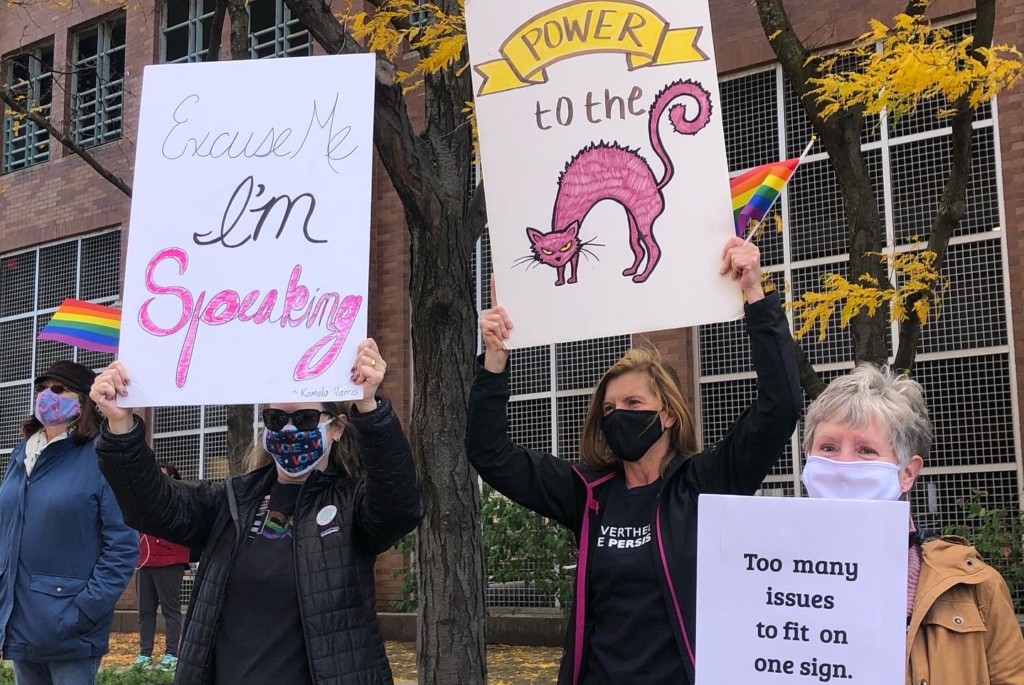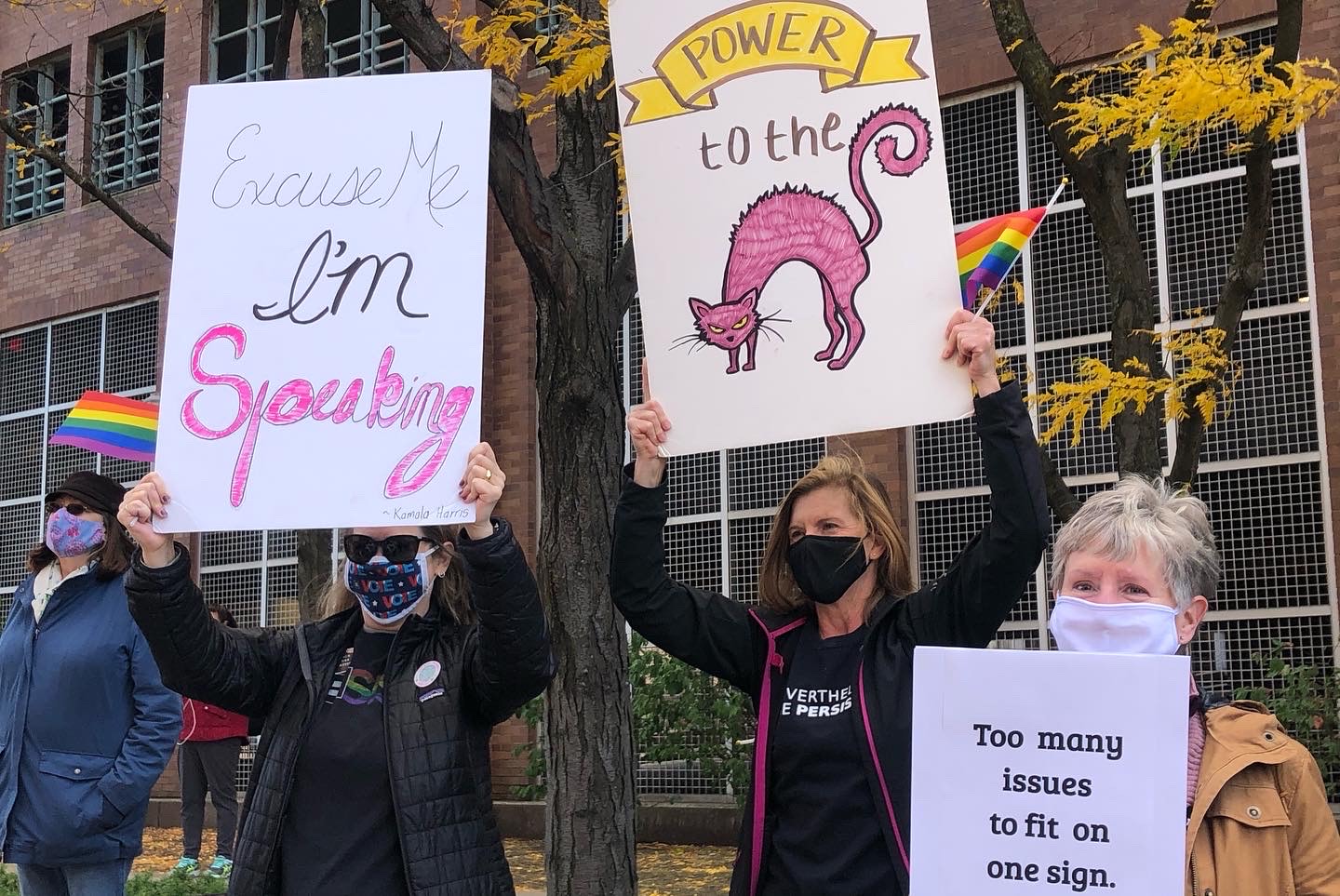Last Saturday, another nationwide march was organized in local communities across the country — but this time, this march was to honor former Associate Supreme Court Justice Ruth Bader Ginsburg and to support women’s voting rights.
In Rochester alone, over 100 attendees gathered in Susan B. Anthony Square to participate in their own local Women’s March led by activist Ashley Teague.
At the beginning of the march, State Assembly Candidate Jen Lunsford spoke to the crowd, saying that because of Trump’s nomination for Judge Amy Coney Barrett to succeed Ginsberg, voting has become critical not only for women but for all minorities.
In an interview with the Campus Times, Teague discussed how Trump’s poor handling of the pandemic pushed her to organize and lead the march. “It’s ‘[by] the people, for the people,’ so we are the ones that have to go out there and [have] our voices heard to get something done,” Teague said.
For Teague and attendees of the march, the feminist movement is not only about fighting for women’s rights, but fighting for rights for all groups, including Black Lives Matter and LGBTQ+.
“I think equality for us — for women — is basically just equality for everyone,” UR junior and attendee Victoria Ter-Ovanesyan said. “I think at the end of the day, that’s what America stands for. I hope that’s what it stands for.”
UR junior Ivana Pacar said that protesting represents what America should become. “Seeing how many flags are here — like [the flags of] LGBTQ+ and Black Lives Matter — just proves to you that it’s really intersectional and everyone who’s here is fighting for all the other groups as well,” Pacar said.
RIT junior and attendee Kim Ngo agreed that there is power to physical protests, attributing her realization to the BLM protests in Minneapolis, Minn. in response to George Floyd’s murder.
“Being in an atmosphere where people were open-minded and looking to create change was very inspiring and motivating,” Ngo said. “I felt like I learned another side to something that I hadn’t known before.”
People of all age groups either walked or drove from Susan B. Anthony Square to City Hall, where everyone gathered to listen to guest speakers.
Christine Brucker, an educator for 35 years, recognized the younger generation’s interest in protesting.
“I have always believed in what the future brings for us, and being […] physically here is a big difference,” Brucker said. She also acknowledged the fear that drives people to participate. “I think everyone’s shitting bricks if [Trump] is elected – our democracy is in a downward spiral big-time, worse than it’s been in four years. So yeah, [I’m] just very scared right now.”
Ter-Ovanesyan’s reasoning for marching was that it affects her every day. “I don’t want to be paying for my pads like they’re luxury goods,” she said. “I need them — it’s not my fault that I bleed.”
Teague believes that because so many young people like Ter-Ovanesyan participate in marches similar to Saturday’s, femininity will soon be redefined to make real change. “We need to be inclusive of non-binary and trans people because saying ‘feminism’ leaves people out, and the louder younger generation will really do something [to change that],” said Teague.
When asked about advice for UR’s student activists, Teague said that there is strength in being the first to lead something. “Anything is possible. I know that’s cliche, but […] anything you truly put your mind to, you can do. It takes time, but it happens,” she said.
Teague had one last message for the UR student body: “Vote!”


